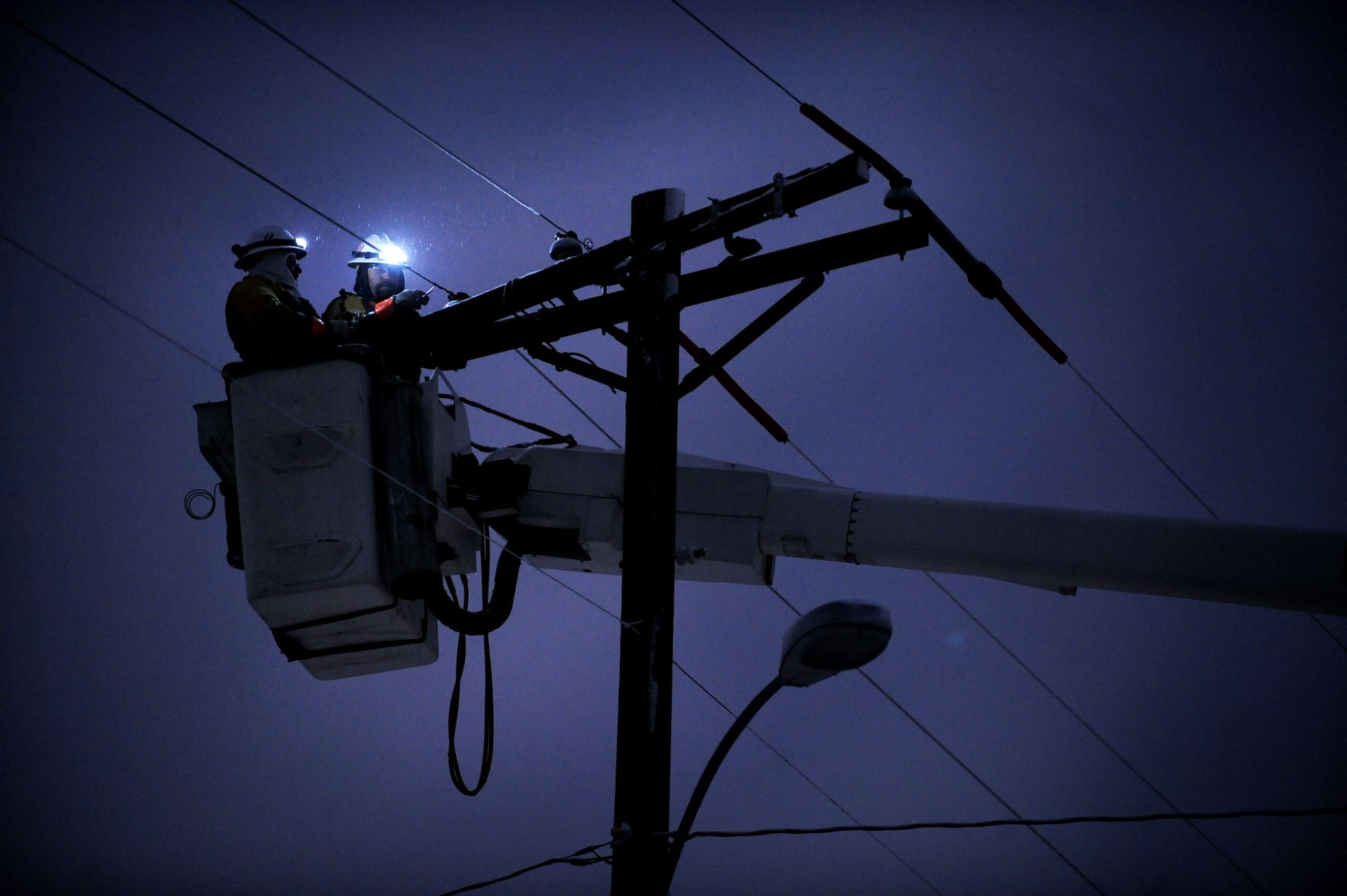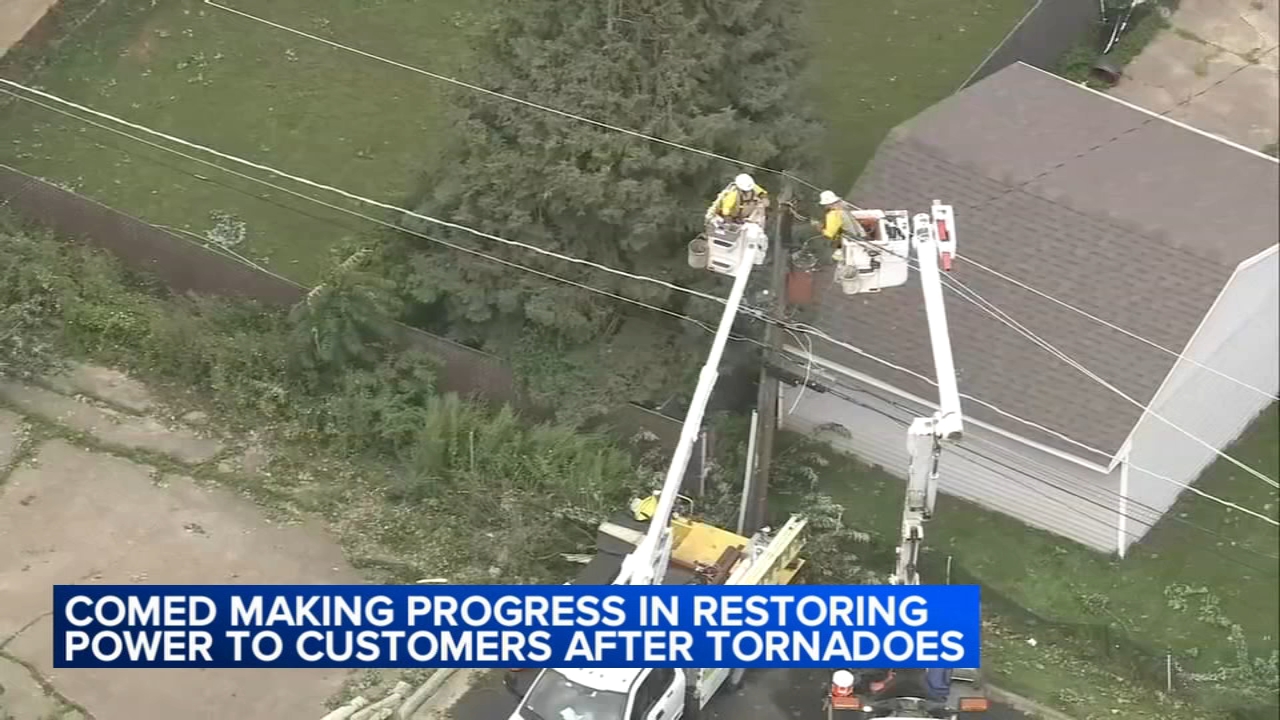Power outages can be an inconvenient and sometimes dangerous occurrence, disrupting daily life and impacting businesses and homes alike. Understanding what causes power outages can help you prepare better and take preventive measures. In this article, we’ll explore the most common causes of power outages, their impact, and tips for mitigating risks.

1. Severe Weather Conditions
Weather is the leading cause of power outages, accounting for a significant portion of electrical disruptions each year. Various weather-related events can impact power lines, transformers, and other parts of the power grid.
Types of Weather Events That Cause Outages:
- High Winds: Strong winds can knock down power lines, poles, and trees, causing widespread outages.
- Lightning Strikes: Lightning can strike electrical equipment, leading to power surges and outages.
- Heavy Rain and Flooding: Excessive rain can lead to flooding, which can damage underground cables and electrical substations.
- Ice and Snowstorms: Ice buildup on power lines and trees can cause them to snap or fall, interrupting power supply.
According to the U.S. Department of Energy, weather-related outages are becoming more frequent due to changing climate patterns, making it essential to stay prepared.
2. Equipment Failure

Electrical infrastructure can experience wear and tear over time, leading to power outages due to equipment failure. Transformers, circuit breakers, and other components of the grid can fail due to age, lack of maintenance, or manufacturing defects.
Common Equipment Issues Include:
- Overloaded Transformers: Transformers can become overloaded during peak usage times, leading to overheating and failure.
- Worn-Out Cables: Underground and overhead cables can deteriorate over time, especially when exposed to harsh environmental conditions.
- Malfunctioning Circuit Breakers: Circuit breakers protect the electrical grid from overloads. If a breaker fails, it can lead to a power outage.
Regular maintenance and upgrading of electrical infrastructure are crucial for minimizing equipment-related outages.
3. Wildlife Interference
Animals, especially small ones like squirrels, birds, and raccoons, are a surprisingly common cause of power outages. These animals may climb on power lines, chew through cables, or nest in substations, causing electrical shorts and damage.
Utilities often implement protective measures like animal guards and deterrents to reduce these incidents, but wildlife interference remains a persistent issue.
4. Fallen Trees and Vegetation

Trees and overgrown vegetation can interfere with power lines, particularly during storms or high winds. Even healthy trees can be pushed over by strong winds, while overgrown branches can make contact with power lines, leading to outages.
Preventive Measures:
- Tree Trimming: Power companies regularly trim trees and clear vegetation near power lines to prevent outages.
- Community Awareness: Homeowners should also be aware of trees on their property and ensure they are trimmed back to avoid potential issues.
5. Human Error
Human activities, such as construction work, vehicle accidents, or vandalism, can inadvertently cause power outages. For example, excavation work may damage underground cables, or a vehicle crash may knock down a utility pole.
Common Human-Related Causes:
- Excavation Damage: Digging without proper utility location checks can result in damaged underground electrical lines.
- Vehicle Accidents: Collisions involving power poles can cause localized power interruptions.
- Vandalism: Deliberate acts, such as tampering with electrical equipment, can lead to outages.
Public awareness and adherence to safety protocols can help minimize human-related outages.
6. Cyberattacks and Security Threats

As power grids become more connected through advanced technology, they also become more vulnerable to cyberattacks. Hackers targeting the power grid can disrupt electrical service to entire regions, posing a significant threat to infrastructure and public safety.
Mitigation Strategies Include:
- Strengthening cybersecurity measures and protocols
- Regular software updates and security patches
- Investing in advanced monitoring systems to detect and prevent unauthorized access
7. Power Grid Overload
Power grid overload occurs when the demand for electricity exceeds the grid’s capacity. This is more common during extreme weather conditions when more people are using heating or cooling systems simultaneously. Overloads can lead to brownouts or blackouts, depending on the severity of the situation.
Preventive Actions:
- Energy Conservation: Reducing energy usage during peak hours can help prevent overloads.
- Grid Upgrades: Investing in modern infrastructure that can handle higher loads is essential for preventing overload-related outages.
How to Prepare for Power Outages
While some power outages are unavoidable, being prepared can help minimize their impact. Here are some tips for staying ready:
1. Have an Emergency Kit
Stock up on essential items like flashlights, batteries, non-perishable food, water, a first aid kit, and a battery-operated radio to stay informed during an outage.
2. Invest in Backup Power Solutions
Consider installing a backup generator or investing in portable power banks for small devices. These can provide power for critical appliances and electronics during an extended outage.
3. Stay Informed
Sign up for alerts from your local utility company to receive updates on outages in your area. Staying informed can help you plan and stay safe during a power disruption.
Conclusion
Power outages can be caused by a variety of factors, from severe weather and equipment failure to human error and cyber threats. Understanding what causes power outages can help you take preventive measures and stay prepared. Ensuring your home is equipped with emergency supplies, practicing energy conservation, and staying aware of potential risks can make a significant difference in how you handle unexpected outages.
For more information on maintaining a safe home environment and managing electrical and mold-related concerns, visit Citywide Mold Mitigation or call 844-552-0467.
FAQ
| Question | Answer |
|---|---|
| What are the most common causes of power outages? | Severe weather, equipment failure, and human error are among the most common causes of power outages. |
| Can animals cause power outages? | Yes, animals such as squirrels, birds, and raccoons can cause power outages by interfering with electrical equipment. |
| How can I prepare for a power outage? | Prepare an emergency kit, invest in backup power solutions, and stay informed through local utility updates. |
| What is the difference between a brownout and a blackout? | A brownout is a reduction in voltage that causes lights to dim, while a blackout is a complete loss of power. |
| How do power companies prevent outages? | Power companies use regular maintenance, tree trimming, cybersecurity measures, and grid upgrades to prevent outages. |

